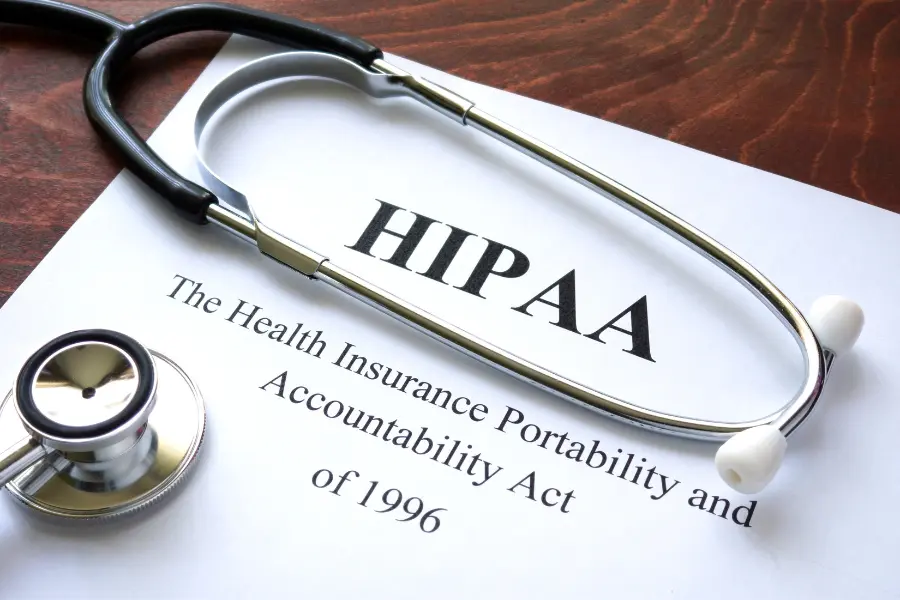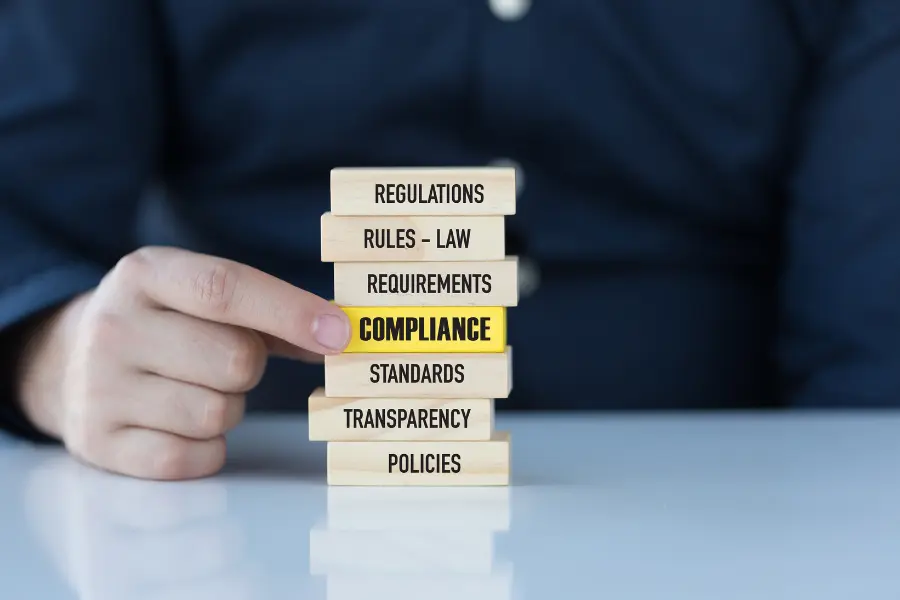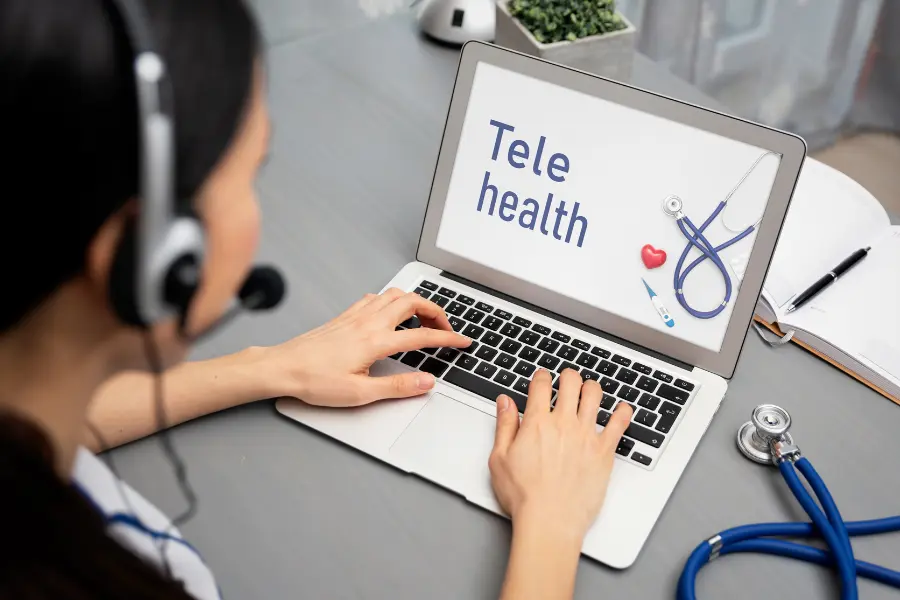
-
Apexlink
Real Estate
-
DLS
General Insurance
-
DMV
Government
-
Entiger
Fintech
-
GIS Mapping
Gas & Petroleum
-
HMS
Employee Benefit
-
HAWA
Government
-
Harley
Community
-
IHG
Hotel & Tourism
-
Sparkseeker
Humane Tech
-
Track Ninja
Sports
-
Response Vision
Disaster Management
- Artificial Intelligence
- Application Services
- Automation Services
- Cyber Security
- Chatbot Experts
- Data Analysis
- Data Warehouse Services
- Machine Learning
- Digital Commerce Services
- Digital Transformation
- Infrastructure Service
- IT Support
- IT Consulting
- IT Outsourcing
- IOS Development
- Android Development
-
Cross Platform Development
-
Gaming App Development
Enough has been said and written about the role of technology in transforming the healthcare industry. However, with the increasing intervention of digital means in facilitating this transformation, there is a need for increased focus on how sensitive data, such as health information, is secured and handled by healthcare IT solutions. Acts such as HIPAA help ensure that your private health information is handled carefully by the said wonders of technology.
But what is HIPAA Compliance?

HIPAA is the abbreviation for Health Insurance Portability and Accountability Act. And HIPAA compliance is the adherence to the security and privacy regulations as outlined in the HIPAA laws. This compliance requires technology companies that handle private health information to implement strict security measures to ensure the confidentiality and integrity of this information. Regulated by the U.S. Department of Health and Human Services, HIPAA compliance ensures complete protection of the privacy of individually identifiable health information.
It is mandatory for companies, healthcare IT solutions providers, and business associates to meet HIPAA compliance requirements if they want to stay clear of legal and financial penalties. Any company operating in the healthcare industry in the U.S. must comply with HIPAA regulations as failure to do so may result in severe consequences.
The Role of Complete HIPAA Compliance Services

It can be difficult for a technology company to adhere to the HIPAA regulations by themselves, and it is here that some assistance from a HIPAA compliance services provider may prove to be extremely beneficial. These healthcare IT services cover most administrative and technical requirements, such as the establishment of policies, training, risk assessment, and more.
Seasia is one of the few technology companies that offers HIPAA compliant software development for the healthcare industry. We can also develop customized HIPAA-compliant security programs to prevent data breaches and security threats, in addition to introducing features powered by IoT in healthcare tools.
Partnering with an organization that offers HIPAA compliance services or HIPAA compliant software development is key to avoiding stiff penalties for noncompliance.
Do I really need to be HIPAA compliant?
If you work in the healthcare industry in the U.S. in any capacity, the answer will be Yes. HIPAA applies to every single country operating in the American healthcare industry; this includes health plans, healthcare clearinghouses, healthcare IT service providers and data storage providers that have access to any kind of patience information, and the like.
How to make healthcare software HIPAA compliant?
First things first, you won’t need to ensure HIPAA compliance if your software doesn’t interact with private health information in any form. If it does, this section is for you.
Let’s discuss some steps you must take in order to ensure that your mhealthapp or software is HIPAA compliant.
Perform a thorough risk analysis.
A nice place to start would be listing out all the crucial details, such as type of data your software utilizes, potential risks, current security measures, and potential impact of threat occurrence. You should perform risk analysis often to spot any loopholes and act upon them.
Ensure ePHI data security on servers.
Even though reputed could storage providers including AWS, Microsoft Azure, and GCP offer HIPAA-compliant servers for storage of ePHI data, it is important to cross check with the service provider. One good practice is to optimize your software so that it operates on minimal data.
Implement data encryption wherever possible.
Data encryption is one of the most effective risk mitigation measures. It protects sensitive information from unauthorized access and data breaches.
Back up data and prepare for disaster management.
The HIPAA Security Rule emphasizes data backup and disaster recovery, and therefore, you must consider creating multiple backup copies in encrypted form and facilitate a real-time audition solution. You must also create a recovery process to ensure business continuity even in turbulent times.
Get rid of old data.
It is important that you dispose of private health information that is no longer required very carefully. Keep in mind that even old data should not be recoverable or accessible to the public.
Limit access to trustworthy personnel.
Make sure only those authorized can see or access private health information. Some access management features you may consider adding to your software are unique user identification, activity logs, emergency access to data, strong authentication, and more.
Invest in employee training.
It might be a good idea to train the involved team members on HIPAA compliance and best practices for data security to minimize human error.
Regularly assess and revise internal security policies.
Having HIPAA compliant software isn’t enough. It is important to ensure that the users are using it in a HIPAA compliant manner too. This can be done only when the internal security policies are regularly updated to align with HIPAA requirements.
HIPAA Rules for Telehealth Technology

Anyone providing managed IT services for healthcare must comply with the following HIPAA rules published by the U.S. Department of Health and Human Services.
Privacy Rule
The HIPAA Privacy Rule sets national standards for the protection of individuals' medical records and other personal health information. It requires appropriate safeguards to protect the privacy of personal health information and sets limits and conditions on the uses and disclosures that may be made of such information without patient authorization.
Security Rule
The HIPAA Security Rule outlines security standards for protecting health information that is held or transferred in electronic form. The Security Rule operationalizes the protections contained in the Privacy Rule.
Enforcement Rule
The HIPAA Enforcement Rule provides guidelines for the investigation of HIPAA compliance violations and the application of penalties for those violations.
Breach Notification Rule
The HIPAA Breach Notification Rule mandates that covered entities and their business associates notify affected individuals, the Department of Health and Human Services (HHS), and, in some cases, the media, in the event of a breach of unsecured protected health information.
Omnibus Rule
The Omnibus Rule significantly expanded and clarified HIPAA provisions to enhance patient privacy protection and strengthen the security of health information. It extends the compliance requirements of HIPAA, enhances privacy protection for patients, introduces a tiered penalty structure for violations, and revises the harm threshold for breach notification.
Guidance on HIPAA & Cloud Computing

Cloud computing is being used to revolutionize the healthcare industry at a very large scale. This transition makes it very important for developers to ensure HIPAA compliance in the cloud.
Here are some noteworthy considerations for anyone looking to provide managed IT services for healthcare.
Choose the right cloud service model: There are three standard HIPAA-compliant cloud service models: Software-as-a-Service (SaaS), Platform-as-a-Service (PaaS), and Infrastructure-as-a-Service (IaaS). You may choose one depending upon your unique requirements.
Select a HIPAA-compliant cloud provider: When choosing a cloud provider, it is best to ensure that they adhere to HIPAA compliance requirements, such as risk assessment, data backup, and disaster recovery. Most reputed providers are HIPAA-compliant.
Implement security measures: HIPAA-compliant cloud services allow health organizations to safely store sensitive patient data and protect against malware attacks and natural disasters.
Establish a HIPAA-compliant Business Associate Agreement: A covered entity or business associate must enter into a HIPAA-compliant BAA with the cloud service provider to ensure proper handling of private health information.
Use encryption systems: Encryption systems can help protect ePHI from unauthorized access and maintain its confidentiality.
Follow guidance from the U.S. Department of Health and Human Services: HHS offers guidance on the use of cloud computing, business associate agreements, and HIPAA-related concerns.
Monitor and maintain compliance: Regularly review and update security measures to ensure ongoing compliance with HIPAA regulations.
HIPAA and the Advantages of the Cloud
As far as HIPAA compliance is concerned, cloud computing offers a plethora of advantages for healthcare organizations.
These include:
Data Security
HIPAA-compliant cloud services provide end-to-end security measures for storing electronic protected health information. This helps ensure complete privacy of patient records while also helping organizations avoid penalties for non-compliance.
Improved Accessibility and Cost Savings
Cloud storage allows for quick and easy access to a large amount of data, enabling better and faster patient care. It also offers benefits, such as remote file sharing, and expanded storage, making it an appealing option for healthcare organizations.
HIPAA Compliant IT Services for The Healthcare Industry
Seasia has several years of experience offering HIPAA compliant IT services for the healthcare industry. Our range of HIPAA-compliant IT services includes cloud-based solutions, employee training, comprehensive security measures, and more.
Are you on the lookout for a reputed and reliable partner to launch HIPAA-compliant healthcare management software?
Let’s start talking.
Frequently Asked Questions
What are the key aspects of HIPAA compliance?
The key aspects of HIPAA compliance include protecting the privacy and security of protected health information, ensuring necessary safeguards, implementing relevant policies and procedures, and regularly assessing and updating security measures.
What is a HIPAA compliance?
HIPAA compliance involves adhering to the standards set by the Health Insurance Portability and Accountability Act (HIPAA) for the protection, handling, and confidential transmission of individually identifiable private health information.
What are the 3 major rules in HIPAA regulations?
The 3 major rules in HIPAA regulations are: the Privacy Rule, the Security Rule, the Breach Notification Rule. All these rules have been explained here.
What is a compliance checklist?
A HIPAA compliance checklist is a list of items or tasks that must be completed in order to achieve and maintain HIPAA compliance.







 Artificial Intelligence
Artificial Intelligence
 Blockchain
Blockchain Cloud Computing
Cloud Computing Infrastructure
Services
Infrastructure
Services Metaverse
Metaverse QA
Automation
QA
Automation UI/UX
UI/UX








